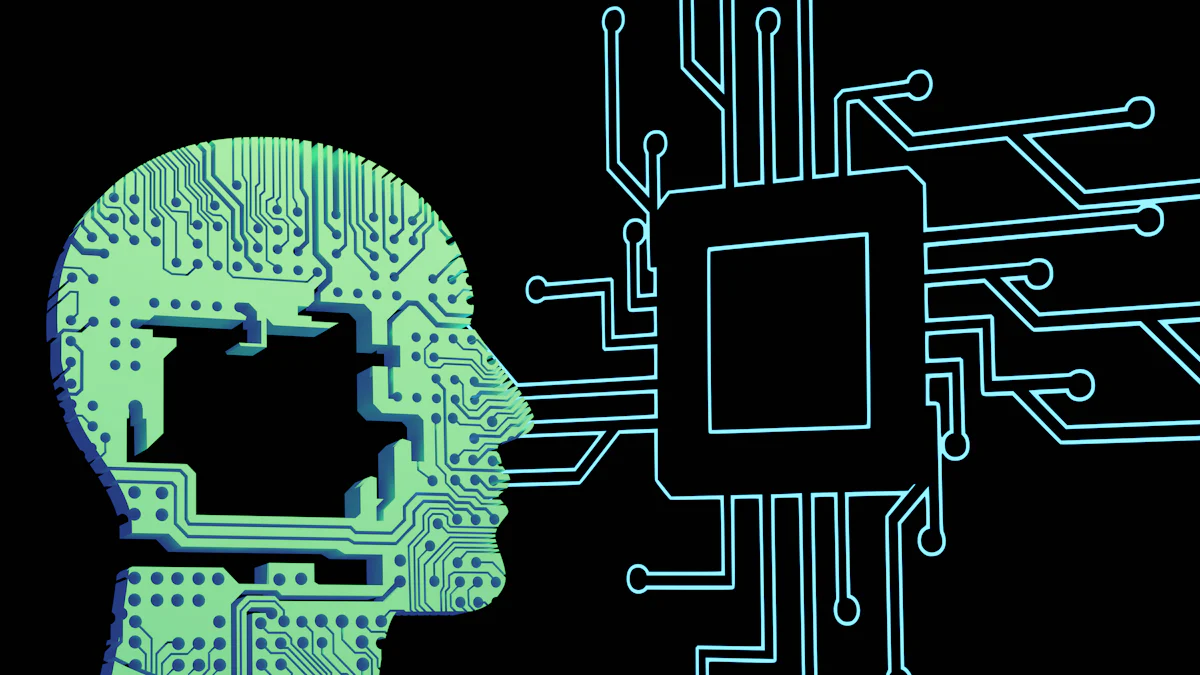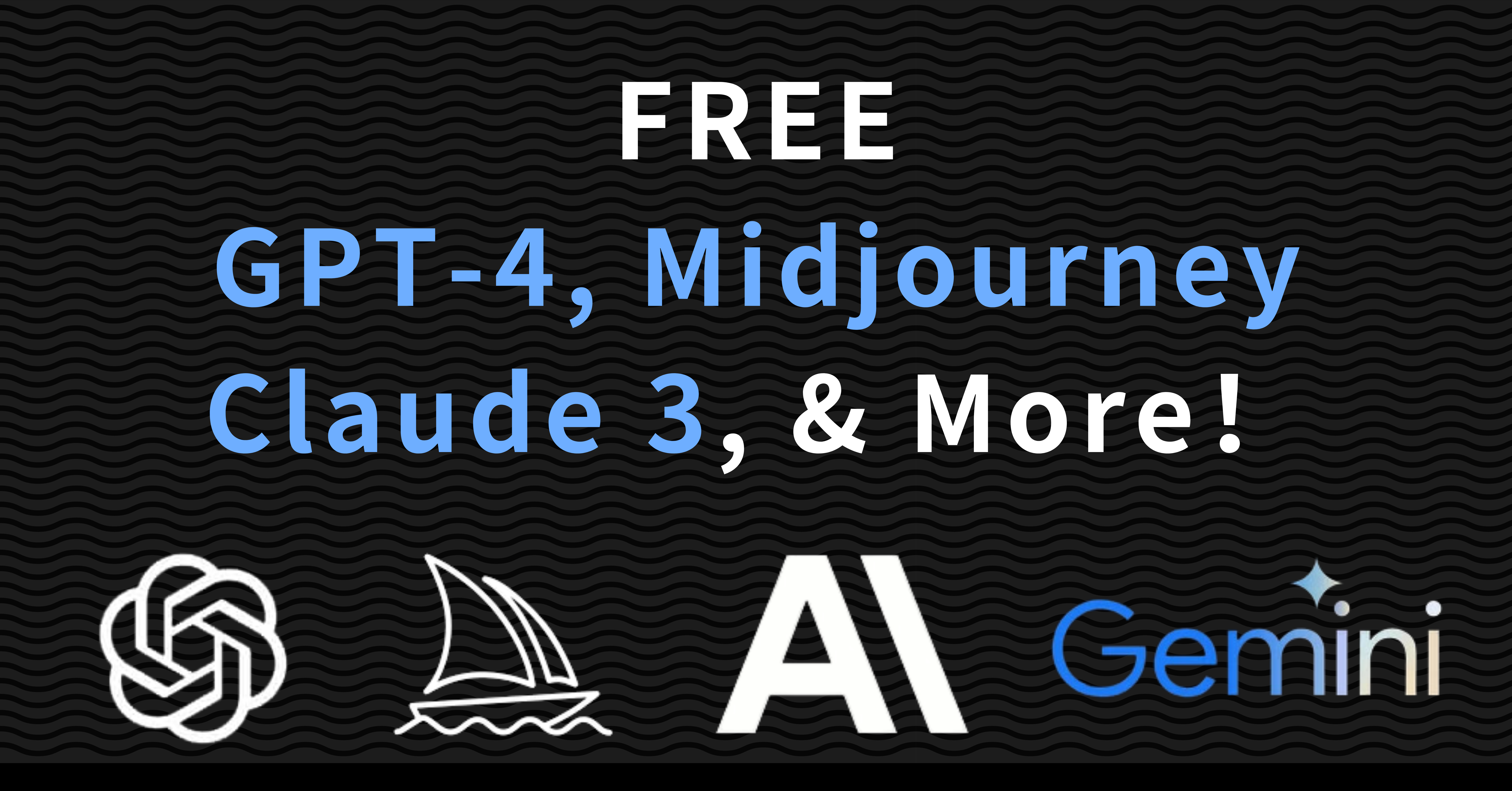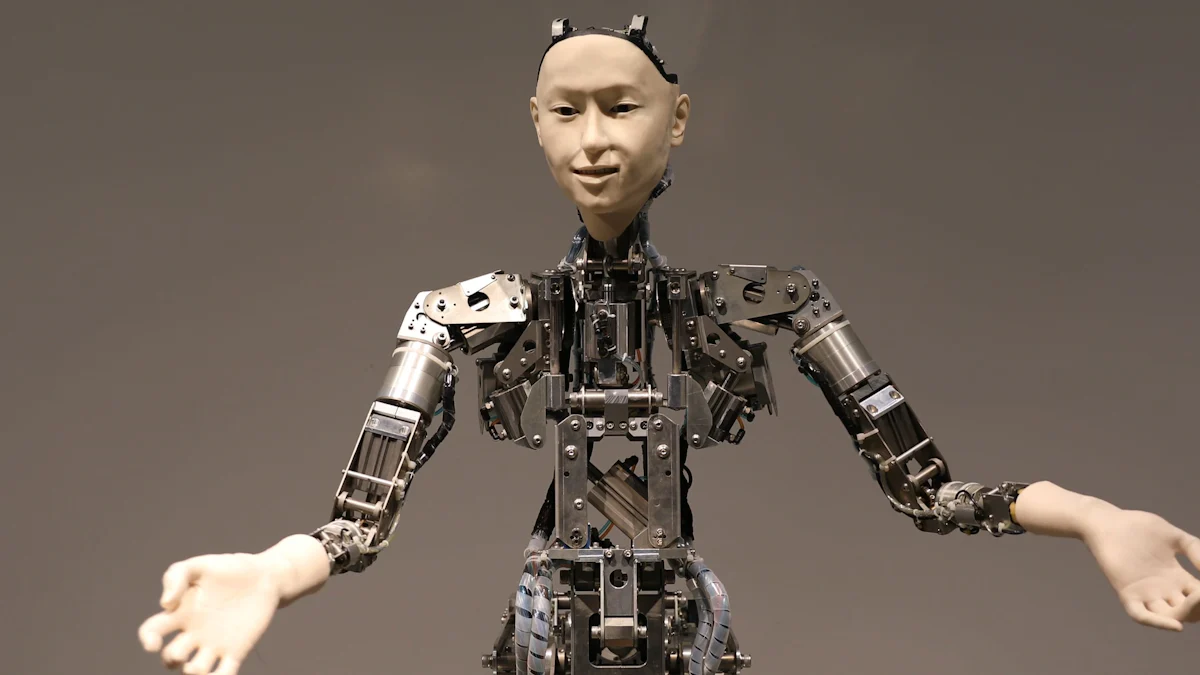Discover the Future: OpenAI Debuts GPT-4o, a Game-Changer

In a groundbreaking announcement, OpenAI unveils GPT-4o, a revolutionary multimodal model integrating text, vision, and audio capabilities. This cutting-edge advancement sets a new standard in AI technology, offering unparalleled versatility across various applications. With its enhanced advancements and real-time processing, GPT-4o promises to reshape the landscape of generative AI experiences.
Multimodal Capabilities

The Multimodal capabilities of GPT-4o mark a significant leap in AI technology, ushering in a new era of versatility and innovation. By seamlessly integrating text, vision, and audio, this advanced model redefines the boundaries of AI applications.
Text, Vision, and Audio Integration
Explanation of multimodal features
GPT-4o's multimodal prowess enables it to process information from various sources simultaneously. This means that it can analyze text, images, and audio inputs concurrently, leading to a more comprehensive understanding of data. The model's ability to interpret multiple modalities allows for richer interactions and more nuanced responses.
Examples of text, vision, and audio integration
Text: When presented with textual input, GPT-4o can generate detailed descriptions or summaries based on the content provided.
Vision: By analyzing images or videos, the model can describe visual scenes accurately or provide contextually relevant information.
Audio: GPT-4o can transcribe spoken language into text with high accuracy, enabling seamless transitions between different communication mediums.
Enhanced User Experience
How multimodal capabilities improve user interactions
The incorporation of multimodal features in GPT-4o enhances the overall User Experience by offering a more interactive and personalized interface. Users can now engage with the model through various modalities, creating a dynamic and engaging human-computer interaction.
Benefits for various applications
Enhanced Interaction: Users can communicate with GPT-4o using their preferred mode—whether through text inputs, image prompts, or voice commands.
Improved Accessibility: The model's multimodal capabilities make it accessible to individuals with diverse communication needs, promoting inclusivity in AI-driven solutions.

Pay-as-You-Go:
Top Up from Just $1 Balance Never Expires
All-in-One: Access All Models in One Place
AI Total Data Privacy
Unlimited Usage Limitation
Accepts Fiat and Crypto Payments
Performance and Benchmarks
As the technological landscape evolves, the demand for faster processing speeds in AI models becomes increasingly crucial. GPT-4o stands out with its remarkable processing capabilities, setting new standards for efficiency and performance.
Improved Processing Speed
Details on faster processing capabilities
The enhanced processing speed of GPT-4o is a result of meticulous optimization and cutting-edge hardware integration. By leveraging state-of-the-art parallel computing techniques, the model can swiftly analyze complex data sets, significantly reducing latency and enhancing real-time interactions. This improvement not only accelerates response times but also enables seamless integration with various applications, ensuring a smooth user experience.
Comparison with previous models
When compared to its predecessors, such as GPT-3, the advancements in processing speed are truly remarkable. GPT-4o demonstrates a substantial increase in computational efficiency, allowing for quicker data processing without compromising on accuracy or quality. This leap in performance showcases OpenAI's commitment to pushing the boundaries of AI development and delivering next-generation solutions to meet evolving industry demands.
Benchmark Achievements
Key benchmarks and performance metrics
In recent benchmark tests, GPT-4o has consistently outperformed existing models across various key performance indicators. From language understanding to image recognition tasks, the model has showcased unparalleled accuracy and reliability, solidifying its position as a frontrunner in the AI landscape. These benchmark achievements underscore the model's exceptional capabilities and its potential to revolutionize diverse industries through advanced AI solutions.
Significance of these achievements
The success of GPT-4o in benchmark assessments highlights not only its technical prowess but also its practical applicability across different domains. By surpassing industry-standard benchmarks with ease, the model paves the way for more efficient data processing, innovative problem-solving approaches, and enhanced user experiences. These achievements signify a significant milestone in AI development and set a new precedent for future advancements in machine learning technologies.
Applications and Use Cases

ChatGPT and ChatGPT Enterprise
Use in ChatGPT and enterprise solutions
The integration of ChatGPT within various platforms has revolutionized the way users interact with AI-driven systems. ChatGPT serves as a versatile tool for enhancing customer support, streamlining communication processes, and personalizing user experiences. In the realm of enterprise solutions, ChatGPT Enterprise caters to the specific needs of large organizations by offering tailored AI capabilities that optimize workflow efficiency and decision-making processes.
Benefits for businesses and large enterprises
Enhanced Customer Engagement: By incorporating ChatGPT into their platforms, businesses can provide round-the-clock customer support, address inquiries promptly, and offer personalized recommendations based on user preferences.
Workflow Optimization: ChatGPT Enterprise streamlines internal communication channels, automates repetitive tasks, and facilitates data analysis, enabling enterprises to operate more efficiently and make informed strategic decisions.
Cost-Efficiency: The deployment of ChatGPT solutions reduces operational costs associated with customer service management, accelerates response times, and enhances overall productivity within large enterprises.

Pay-as-You-Go:
Top Up from Just $1 Balance Never Expires
All-in-One: Access All Models in One Place
AI Total Data Privacy
Unlimited Usage Limitation
Accepts Fiat and Crypto Payments
Multilingual Support
Explanation of multilingual capabilities
The inclusion of multilingual support in GPT-4o signifies a significant advancement in bridging language barriers across diverse global audiences. This feature enables the model to process and generate content in multiple languages seamlessly, catering to a broader user base with varying linguistic preferences. The ability to interpret different languages enhances accessibility and inclusivity in AI applications, fostering cross-cultural communication and knowledge sharing.
Examples of applications in different languages
Language Localization: GPT-4o's multilingual capabilities allow businesses to localize their content effectively for international markets without compromising linguistic nuances or cultural sensitivities.
Global Communication: With the capacity to understand and respond in multiple languages, GPT-4o facilitates seamless global communication channels for multinational corporations, diplomatic entities, and educational institutions.
Cross-Cultural Collaboration: By supporting diverse language inputs, GPT-4o promotes collaboration among individuals from distinct cultural backgrounds, encouraging knowledge exchange and mutual understanding on a global scale.
Ethical Concerns and Implications
As technology advances at a rapid pace, ethical concerns surrounding AI development have come to the forefront of discussions. The integration of multimodal capabilities in AI models like GPT-4o raises important questions about data privacy, bias mitigation, and societal impact.
Responsible AI Development
Discussion on ethical considerations
In the realm of AI, ethical considerations play a crucial role in shaping responsible development practices. Organizations like OpenAI recognize the significance of upholding ethical standards in AI research and deployment. By addressing issues such as algorithmic transparency, data security, and fairness in AI systems, OpenAI aims to foster trust among users and promote ethical decision-making processes.
Measures taken by OpenAI for responsible development
To ensure responsible AI development, OpenAI has implemented various measures to mitigate potential risks associated with advanced AI technologies. Through rigorous testing protocols, continuous monitoring of model behavior, and engagement with diverse stakeholders, OpenAI strives to uphold ethical standards and accountability in its projects. Additionally, collaborations with experts in ethics and governance further strengthen OpenAI's commitment to developing AI solutions that prioritize user well-being and societal welfare.
Future Implications
Potential impact on society and industries
The introduction of GPT-4o signifies a significant milestone in the evolution of AI technologies, with far-reaching implications for society and industries. As multimodal models become more prevalent, there is a growing need to anticipate and address the potential impacts on job markets, education systems, and cultural norms. By leveraging advanced AI capabilities responsibly, organizations can harness the transformative power of technology while safeguarding against unintended consequences.
Long-term ethical considerations
Looking ahead, it is essential to consider the long-term ethical implications of deploying sophisticated AI models like GPT-4o. Issues such as data privacy protection, algorithmic bias detection, and regulatory compliance will continue to shape discussions around responsible AI usage. By proactively engaging with these challenges and prioritizing ethical frameworks in decision-making processes, stakeholders can navigate the complexities of an increasingly digital world while upholding fundamental values of fairness, transparency, and accountability.
In conclusion, GPT-4o by OpenAI represents a groundbreaking leap in AI technology. Its integration of text, vision, and audio capabilities opens up new horizons for generative AI experiences. As we reflect on the key features and advancements of GPT-4o, it becomes evident that ethical AI development is paramount in shaping a responsible technological future. Looking ahead, the potential of GPT-4o to revolutionize industries and society underscores the need for continuous ethical considerations and proactive measures to ensure a harmonious coexistence with advanced AI technologies.
